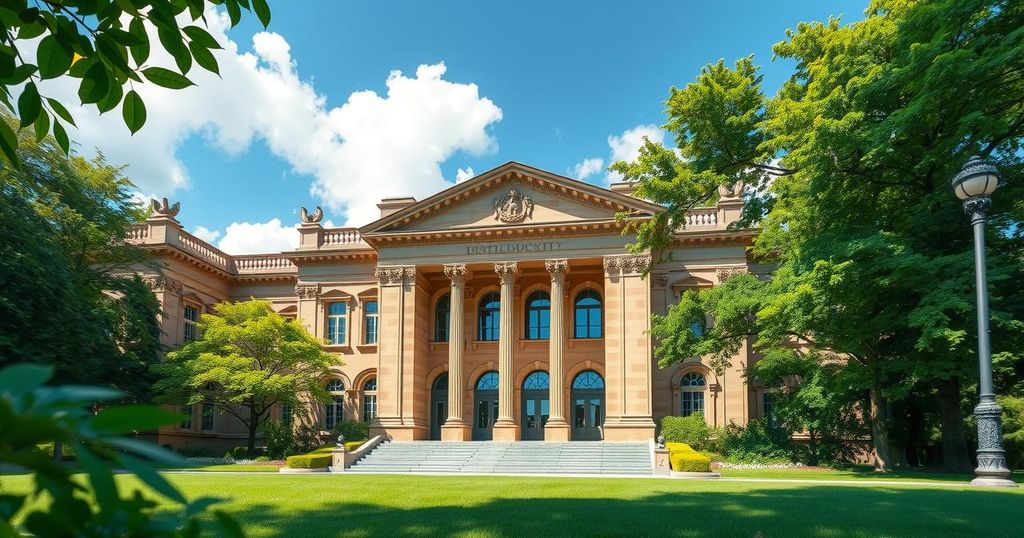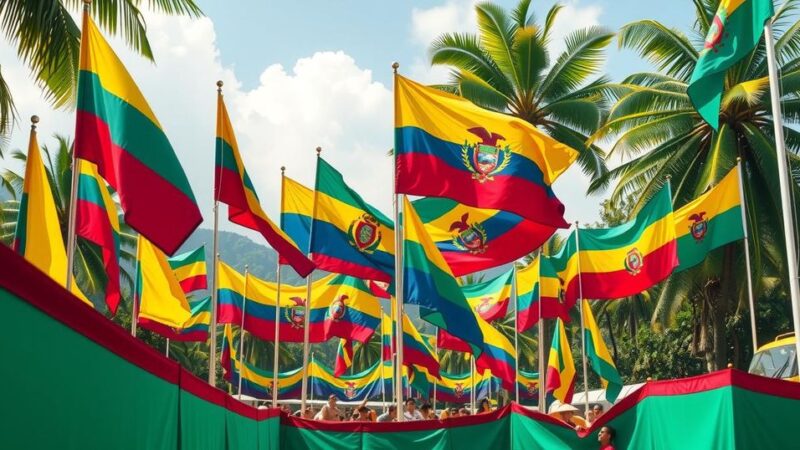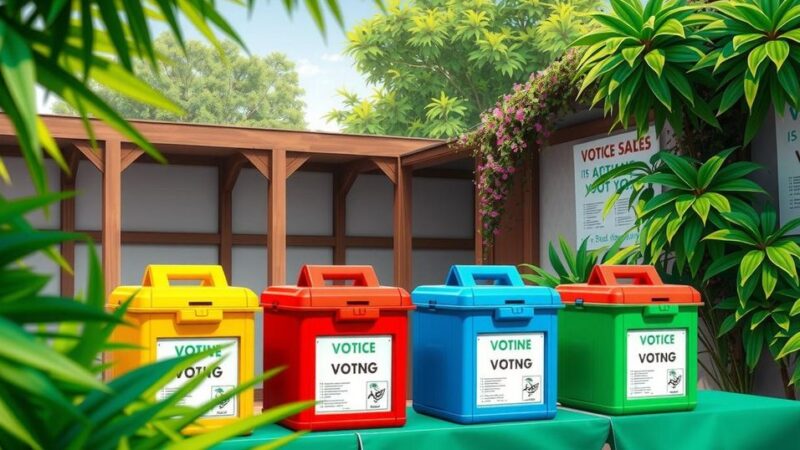Marcel Niat Njifenji and Cavaye Yeguie Djibril have been re-elected as heads of Cameroon’s Senate and National Assembly, reflecting a predictable political landscape dominated by the ruling CPDM/RDPC. With no challengers and a history of minimal legislative progress, the current political environment in Cameroon remains unchanged as the next presidential election approaches, reinforcing the notion that power is inherited rather than contested.
In a predictable turn of events, Marcel Niat Njifenji and Cavaye Yeguie Djibril have once again secured their positions as heads of the Senate and National Assembly in Cameroon. Cavaye Yeguie Djibril, aged 84, maintained his leadership role since 1992 with 125 votes out of 137, facing no challengers. Simultaneously, Marcel Niat Njifenji, at 90, continues his presidency of the Senate since its inception in 2013, collecting 87 votes out of 90, underscoring the notion that longevity trumps performance in political tenure.
The ruling Cameroon People’s Democratic Movement (CPDM/RDPC) continues to orchestrate elections meticulously, ensuring the outcomes are predetermined. This exercise often involves convening parliament to endorse the existing leadership without any genuine competition, leaving opposition lawmakers with minimal influence and often opting to submit blank ballots as a form of protest.
Cavaye Yeguie Djibril is recognized for his frequent medical trips abroad while still holding office without active participation in legislative matters. His primary role appears to be facilitating the National Assembly as a supportive voice for the 92-year-old President Paul Biya, who has been in power for 42 years. In parallel, Marcel Niat Njifenji occupies a ceremonial role in the Senate, which has become a resting place for aging party loyalists.
Opposition parties have voiced their grievances, albeit quietly due to fears of accusations regarding state destabilization. With the CPDM steadily commanding both legislative chambers, political discourse is relegated to a mere endurance test, marked by lengthy sessions with minimal substantive progress. As the October 2025 presidential election approaches, the political landscape in Cameroon remains stagnant, with the likelihood of the same individuals being re-elected and the enduring preservation of the status quo.
In summary, the recurring election of Marcel Niat Njifenji and Cavaye Yeguie Djibril as heads of Cameroon’s legislative bodies exemplifies a political norm devoid of genuine competition. The apparent absence of challengers underscores a system in which power is recycled rather than contested, contributing to a stifled political environment where real change remains absent. As the nation gears up for future elections, the expectation of the same political figures reaffirming their positions appears all but assured, leaving the democratic process in limbo.
Original Source: www.cameroon-concord.com






